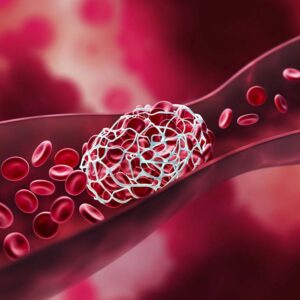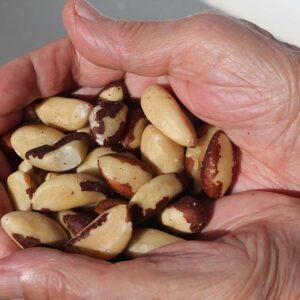
Scientists Discover Unlikely Cause of Loneliness
Dear Living Well Daily Reader,
Ever sat at home alone on Saturday night?
Or sat in a crowded restaurant surrounded by people laughing, drinking and socializing yet felt like you’re totally alone? Like you’re an island in a sea of people?
Then you may know the sadness, depression, isolation and even anger that you feel as the empty, lonely hours go by.
In fact, the deep, longing pain of loneliness is so powerful and takes such a toll on your health that it’s a better predictor of early death than obesity.
And while there are some folks who argue spending a weekend night in your own company sounds like a dream come true, everyone has experienced the all-consuming darkness that is being lonely during their life.
And recently, researchers have found that being lonely takes on many different definitions for those who experience this drab feeling.
You see, some folks feel lonely only when they are actually alone, while others can feel isolated when they’re in a crowd of people or even in the company of friends and family. Additionally, this feeling of loneliness can be permanent for some folks.
According to new research from the University of California, San Diego School of Medicine, these endless pangs for human contact could be linked to a factor beyond our social circle — our genetics.
![]() Wired for Sadness
Wired for Sadness
Using information from a longitudinal study on health, aging and retirement called the Health and Retirement Study, the researchers collected the genetic data on over 10,700 Americans. All participants were age 50 or older and answered three questions designed to reliably measure loneliness, though none of the questions actually used the word “lonely,” since people aren’t always keen on admitting they feel this way.
The questions were:
- How often do you feel that you lack companionship?
- How often do you feel isolated from others?
- How often do you feel left out?
At the conclusion of the study, the scientists found that experiencing lifetime loneliness (versus experiencing occasionally loneliness due to circumstances) is 14–27 percent genetic, making it a modestly heritable trait.
The scientists also concluded that loneliness is usually inherited alongside neuroticism, a trait that causes long-term negative feelings and depression.
A team led by Dr. Abraham Palmer Ph.D., vice chair for basic research at UC, San Diego School of Medicine and lead researcher for the study, is currently trying to decipher specific genetic variations that contribute to the heredity of loneliness. These findings help us further understand the how genes influence our feelings.
That said, whether you’re genetically wired to be lonely or not, there are things you can do to get out in the world and establish connections.
Volunteer at a local hospital, join a gardening club or reconnect with an old friend or neighbor — it might just build a bridge to your island.
Live well,

Natalie Moore
Managing editor, Living Well Daily
Sources
[1] Loneliness and social isolation as risk factors for mortality: a meta-analytic review.
Written By Natalie Moore
Natalie Moore is a dedicated health researcher with a passion for finding healthy, natural, and science-based solutions. After a decade of direct healthcare experience in western and natural medicine, she was involved in public health research before joining Living Well Daily.
View More Free Articles
Mailbag: Diarrhea Remedies That Really Work
“I have had diarrhea for 6 months. I’m going crazy and don’t know how to stop it! Please help!” – Can’t Stop Running Dear Can’t Stop, Few things disrupt life like battling a bout of diarrhea. Diarrhea is typically defined as having three or more loose, watery stools daily. If you experience this for over...
Take the SHORTER Path to Dramatically Better Health
Are you tired of fitness gurus preaching the virtues of 5 AM workouts and pushing Olympic-level training regimens? Their narrative can feel exhausting and entirely unattainable. But before you toss in the towel completely, I’ve got news that might just put a spring back into your step. A groundbreaking new study reveals that the key...
Unexpected Perks of Your Coffee Habit Revealed!
We all know that the first cup of coffee in the morning can FEEL like a lifesaver. But what if it might actually BE saving your life? A groundbreaking new study suggests that your daily coffee habit could be protecting you from not just one but multiple chronic diseases. Let’s pour over this fascinating research…...
The TRUTH About Diabetes Drugs and Brain Aging
You’ve probably seen the gushing headlines… Most say something like, “Common diabetes drug protects the brain against aging!” And let’s face it, that sounds fantastic. After all, who doesn’t want to keep their brain young and in tip-top shape? The headlines refer to the results of a new study that suggests the widely prescribed type...
Hidden Smartphone Danger Puts You at Risk
Remember when we thought cell phones were just something for young folks to obsess over? Back when we were convinced they were nothing more than a passing fad? Well, times certainly have changed. Now, most people… including many of us older folks… have jumped on the smartphone bandwagon. Heck, some of us are practically as...
Preserve Your Mobility with “Agile Aging” Exercises
Aging has a way of humbling us. You lose hair where you want to keep it—and often end up growing it where you don’t. With every passing year, your eyesight fades, and your waistline expands. And as your once quick pace begins to slow, you fear developing the dreaded “senior shuffle.” But here’s the thing....
Yes, Lazy Saturday Lie-Ins Can BOOST Your Health
Are you burning the midnight oil during the week and catching up on sleep on weekends? Well, I’ve got some news that might help you feel less guilty about those lazy Saturday mornings. A new study suggests that weekend lie-ins might be doing far more than just helping you feel refreshed. Experts say they could...
Mailbag: 7 Hidden Culprits Behind Your Weight Gain
“Why am I gaining weight, even though I am watching what I am eating?” – Battling the Bulge Dear Battling, Gaining weight when you’re not trying to is frustrating. And it just gets worse as we age… often regardless of our diet. The truth is that various factors can promote weight gain even when you’re...
Popular Artificial Sweetener Linked to Dangerous Heart Risk
Remember when erythritol was the darling of the health food world? Well, this popular sugar substitute might not be as sweet a deal as we were led to believe… A shocking new study reveals a dark side to this widely used artificial sweetener. It turns out erythritol is associated with a dangerous—and even deadly—heart risk....
Cracking the Code on Chronic Inflammation
Inflammation and obesity are the evil tag team at the heart of nearly every major disease we face—from diabetes to obesity. What starts as a normal, healthy process to fend off dangerous invaders can quickly fan into the flames of chronic inflammation… and that includes in your gut. The trouble is almost no one has...









